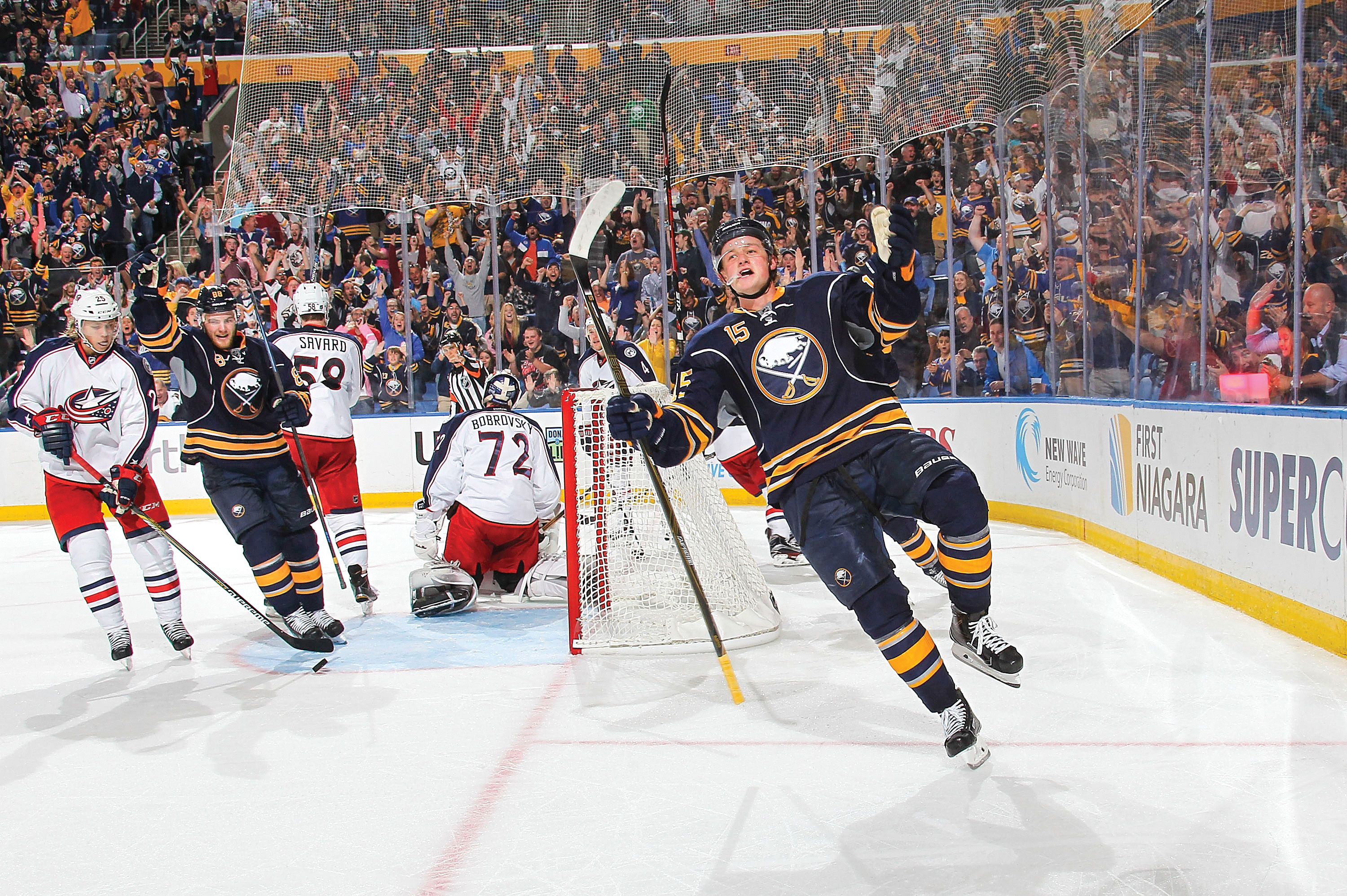Jack Eichel sat on the visitors’ bench at the Consol Energy Center in Pittsburgh and watched Sidney Crosby take his first shift. Eichel has been a Crosby fan since he was eight years old, but this was different. Never had he watched from the bench, never from the other side of the ice.
Crosby put a shot on net, Pascal Dupuis jumped on the rebound, and it was 1–0 Pittsburgh. Less than a minute had expired. Crosby had two points before the period was half over. “I was just like…” Eichel says, trailing off, laughing. “He was buzzing around. It was pretty surreal.”
Like many rookies, Eichel is doing his share of stargazing, appreciating the skill of the world’s best while he plays against them. But the 19-year-old from North Chelmsford, Mass., does so through a different lens than his fellow first-year NHLers. That’s because he faces the same task as the guys he grew up watching most, Crosby and Alex Ovechkin, which is nothing less than helping turn around a struggling franchise. Seeing those players first-hand is not only surreal. It’s also a reminder of the most valuable lesson Eichel has learned through his first half-season in Buffalo: He has to be patient.
This is something Eichel thinks about a lot. Last year’s Hobey Baker Award winner doesn’t shrug off the expectations of being the centrepiece of the Buffalo Sabres’ rescue plan with an “I’m just going to focus on hockey” answer.
“Sometimes you can feel that pressure, and you get frustrated with yourself,” he says. “You want to make an impact and you want to be successful — I think that’s important. It’s a good trait. But sometimes I think I’m my biggest critic and a little too hard on myself. It’s important to give yourself a break and realize that things aren’t gonna happen overnight.”
BUFFALO, NY – OCTOBER 12: Jack Eichel #15 of the Buffalo Sabres celebrates his third period goal against Sergei Bobrovsky #72 of the Columbus Blue Jackets on October 12, 2015 at the First Niagara Center in Buffalo, New York. Buffalo won, 4-2. (Photo by Bill Wippert/NHLI via Getty Images)
The points and wins aren’t coming as quickly or as often as the No. 2-overall pick in 2015 had hoped. He’s discovered a lot of aspects of the game are going to take time. In the faceoff circle, Eichel’s winning about 41 per cent of draws, and he says it’s a skill that will come with experience: the technique, the approach, learning opponents’ strengths and weaknesses, figuring out what to do to counter them. Having a teammate like Ryan O’Reilly, owner of a near league-best winning percentage, to practise against has been valuable.
The more faceoffs he takes, Eichel figures, the better he’ll get. And this applies to all facets of the game, in his mind: “I have a long way to go to get to where I want to be.”
This is not to say Eichel isn’t enjoying the trip there — he is, a lot. Among the early highlights of his NHL career, he points to his first goal, in game one and on his dad’s birthday. He sounds like an excited kid the way he describes how he recently took a faceoff against Ryan Getzlaf. Last month, it was Joe Thornton. These are guys he grew up idolizing. “I catch myself watching people every game,” he says. “Sometimes you find yourself in awe of what these guys can do on the ice.”
His first faceoff against Crosby came during that game in Pittsburgh. Eichel remembers it well. “I was down pretty low on my stick, and he was just standing straight up, and snapped one back,” he says, chuckling. “Yeah, he snapped it back pretty quick. I mean, I was just kinda looking at him like, ‘This is the guy I watched my whole life.’”









